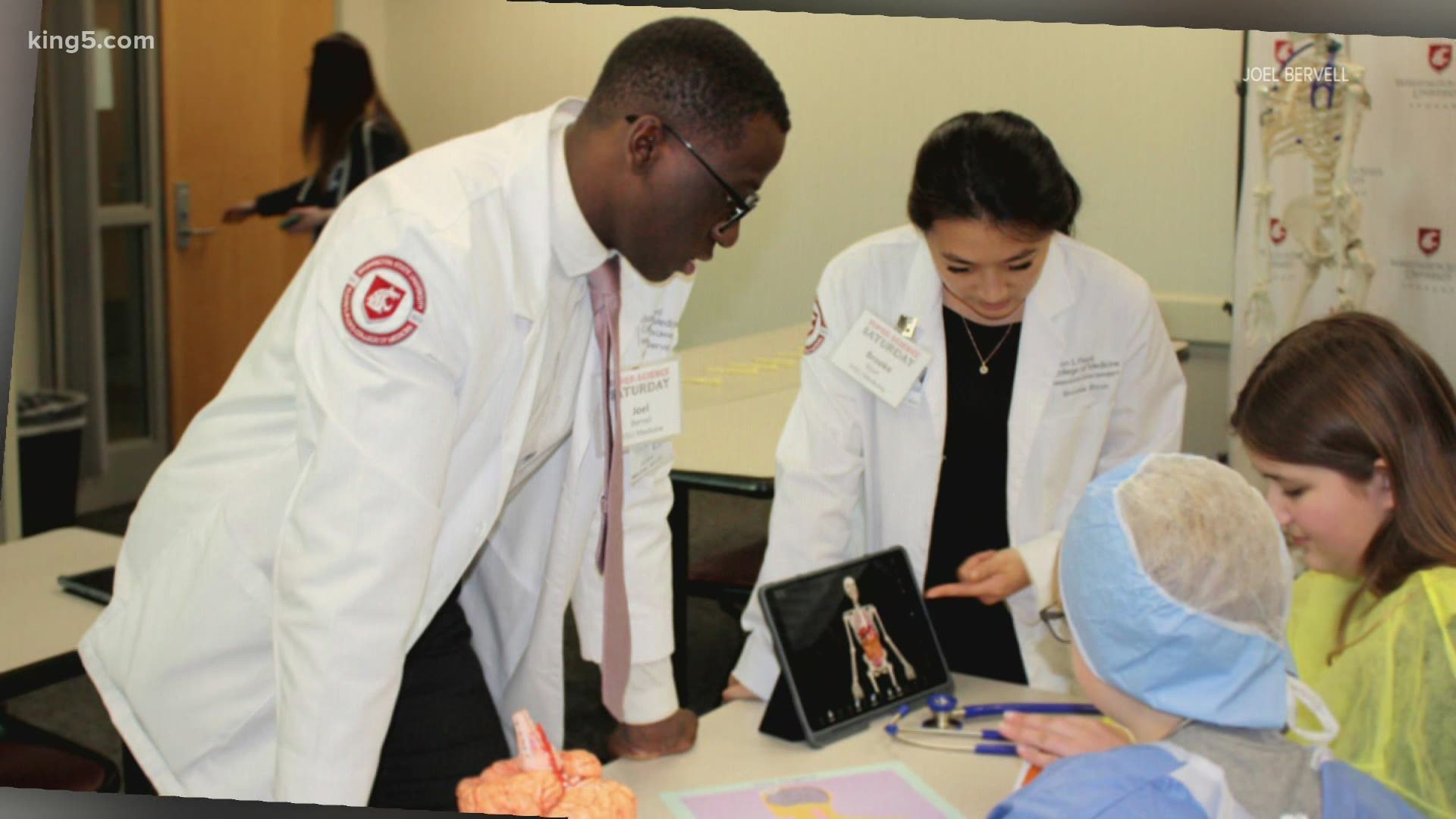Medical schools at the University of Washington (UW) and Washington State University (WSU) are seeing an uptick in applicants, a likely result of young people energized by the prominent role doctors are playing during the coronavirus pandemic.
“They're writing in their essays about being impacted by COVID, having family members impacted by COVID, and being inspired, wanting to be part of the solutions,” said Dr. Leila Harrison, senior associate dean for admissions and student affairs at the WSU Elson S. Floyd College of Medicine in Spokane.
She said the college saw a 21% increase in primary applications this year.
The UW School of Medicine reported a 26% rise in applications across its six campuses, according to Dr. LeeAnna Muzquiz, associate dean for admissions.
Some are calling it the “Fauci effect” or “pandemic effect.”
“For me, what COVID has done, it's really shown me why I want to be in medicine in the first place,” said Joel Bervell, 25, a second-year medical student at WSU.
Bervell said Dr. Anthony Fauci, the director of the National Institute of Allergy and Infectious Diseases, who has been front and center since the start of the pandemic, is one of his role models.
“I think doctors need to be advocates,” said Bervell, who grew up in Mukilteo and wants to work in underserved communities.
Harrison said she was surprised to see greater diversity in the WSU applicant pool this year.
“We're actually seeing people that are first-generation college grads, and those that come from low socioeconomic backgrounds,” she said.
That may be because applicants have easier access to virtual medical school interviews, Harrison said. Previously, many applicants would interview in person, requiring air travel and overnight accommodations.
Some schools, like UW, have also loosened certain application requirements because of COVID.
The uptick in interest in health careers extends beyond medical schools.
The dean of the College of Nursing at Seattle U said first-time undergraduate applications are running about 10% higher this year.
Seattle U said it has also seen an increase in applications to its Master of Social Work program, which encompasses mental health, youth and family services, and addiction treatment, among other topics.
Dr. Hye-Kyung Kang, chair of the Seattle U social work department, said the uptick may also be the result of heightened awareness of social and racial justice in 2020.
The increase in applications is surprising, in some ways, because many medical professionals are under a tremendous amount of stress, working long hours in crowded hospitals with limited supplies.
“It's definitely scary to think about that, but at the same time, you're doing it because you're helping people, and no one else can do that, except for you. That's what you've trained your whole life for, in a way,” Bervell said.

